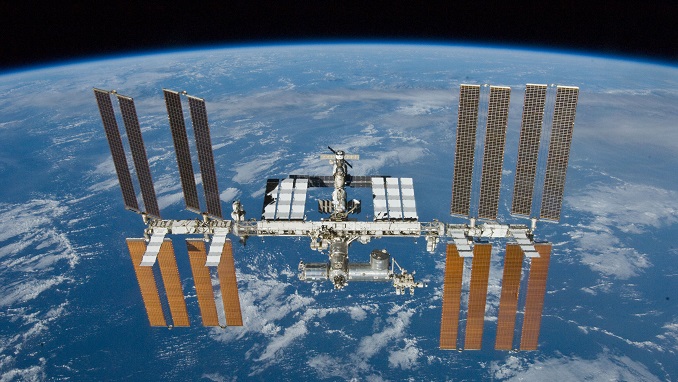The Trump administration is planning to privatize the International Space Station instead of simply decommissioning the orbiting international experiment in 2024, according to a report in The Washington Post.
According to a document obtained by the Post, the current administration is mulling handing the International Space Station off to private industry instead of de-orbiting it as NASA “will expand international and commercial partnerships over the next seven years in order to ensure continued human access to and presence in low Earth orbit.”
“The decision to end direct federal support for the ISS in 2025 does not imply that the platform itself will be deorbited at that time — it is possible that industry could continue to operate certain elements or capabilities of the ISS as part of a future commercial platform,” the internal NASA document states. “NASA will expand international and commercial partnerships over the next seven years in order to ensure continued human access to and presence in low Earth orbit.”
The administration was reportedly looking to request $150 million in fiscal year 2019 “to enable the development and maturation of commercial entities and capabilities which will ensure that commercial successors to the ISS — potentially including elements of the ISS — are operational when they are needed.”
The U.S. government has already spent roughly $100 billion to build and operate the space station as part of an international coalition that also includes the European Space Agency, the Japan Aerospace Exploration Agency, and the Russian Space Agency.
Since ending the Space Shuttle program in 2011, the U.S. relies on Russia to transport astronauts to the ISS. The U.S. currently pays $80 million per seat to travel on Russia’s Soyuz spacecraft.
Both Boeing and Elon Musk’s SpaceX are developing crew transportation systems to enable U.S. astronauts to travel on an American-made space vehicle. Certification is expected in early 2019, the same year the contract between Russia and the U.S. expires. However, the two companies which are working under contract with NASA as part of the commercial crew program, have had continued delays, attributed mainly to efforts to “further address and reduce risk,” which have prevented both from testing their respective transport capsules with a crew on board.












